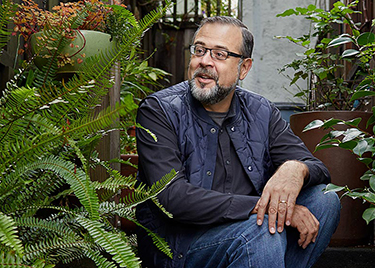The All of Us Research Program was created with the goal of recruiting 1 million people to anonymously share their health information with researchers. The program is especially interested in enlisting people who are often underrepresented in research data.
Among the more than 800,000 people who have joined the program so far is Hugo Campos. After a diagnosis of hypertrophic cardiomyopathy nearly 20 years ago, Campos became interested in accessing medical data created by his cardioverter-defibrillator, an implanted device that monitored and managed his heart rhythm. He became an advocate for patients’ rights to access their own health data.
Campos talks to The Nation’s Health about the All of Us Research Program, why he is a participant and why others should join as well.
Why are you part of the All of Us Research Program?
The health care system is for-profit, health is a commodity. In a lot of different parts of the world, it's seen as a human right. It's not the case here. We have these enormous inequities of health because of perspective. My point of view is that if you are going to charge me for a service, I have to have the ability for self-determination.
Because of my involvement in precision medicine, I didn’t even think about not participating. It was a given because I am interested in the liberation of data collection, citizen science, all of these things that have to do with precision medicine. There’s nothing like it of this magnitude. And being an immigrant, being somebody with a profile that doesn’t match the majority of the population in the U.S., I thought I also had a social responsibility to participate.
What is special or unique about the All of Us Research Program?
This is public funded, you’re paying for it, I’m paying for it. As taxpayers, we are all paying for this study to take place. So I feel a responsibility, in that regard, to make sure that we are doing a good job and not being wasteful.
It’s almost a million (participants) already. It’s very diverse, and if you look at the makeup, the cohort is the most diverse cohort in any study in American history. So we have the ability to look at different populations.
That’s the value in All of Us, and in the enormous amount of data it collects, and the way that it includes the voices of the people who are a part of the study in the governance.
You are also a participant ambassador for All of Us. How does this role help you contribute to the research that All of Us is doing?
What’s important about a participant ambassador program is the ability to create a culture of research in which participants are true partners in the work. In research engaging with the community, you have to think about what is the benefit for that community. In the past, researchers didn't think that way. They don’t think in terms of what can we give back, how can we empower this community to make those folks more knowledgeable about healthcare, more empowered about their lives? Nobody can know that except the community.
That’s why you have to reach out to the community and say what matters to you and establish these listening sessions and engage to find what matters to people. You can’t make assumptions, you have to ask.
What do you tell people about All of Us that would make them want to join?
I think everyone should join. The strength of the program is in its diversity. All kinds of data goes into the All of Us database — diversity of geography, diversity of health status, both healthy people and people with chronic conditions or disabilities should join.
Some people may join because they are a part of a community that is underrepresented in biomedical research. This may be if you are Latino or Black or in other minority groups that don’t have enough representation. If you are looking at it in terms of reasons, there are altruistic reasons and personal reasons, both of which are valid, and I presume people will have a little bit of both, which is my case.
I wanted the genetic tests done, I wanted to learn about genetics, I wanted access to genetic counselors, so that to me, it was very valuable. That alone was my personal reason to join. People may have other personal reasons to join because the program returns value to participants, it returns results. But some people may not care about any of that, and they may just join because they want to be a part of this rare, groundbreaking, unique effort.
Photo courtesy Stanford University